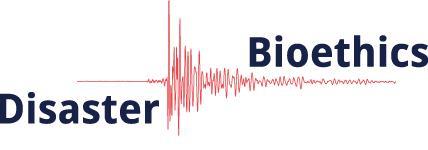Working Group 3: Research ethics
Working Group Chair: Michael Barilan
Working Group Vice Chair: Ives Hubloue
Full member list: Link (registered action members only)
Information about Working Group 3 (copied from MoU)
Evidence-based approaches to disaster planning and responding are increasingly being demanded. However, the evidence is lacking for many decisions, or is of poor quality. As noted in the Mid- Term Review of the UNISDR Hyogo Framework for Action, ‘much of the existing operational research related to emergencies and disasters lacks consistency, is of poor reliability and validity and is of limited use for establishing baselines, defining standards, making comparisons or tracking trends’ (UNISDR 2011 Hyogo Framework for Action: Building the Resilience of Nations and Communities to Disasters 2005-2015 Mid-Term Review, p.46). More research is needed in disaster settings, but this means that research ethics must be addressed.
This WG will identify where work has occurred in disaster research ethics, engage in ethical reflection on the main ethical issues, and make proposals for ethics guidelines and resources to assist those commissioning, conducting or overseeing disaster research. As mentioned above, one of the participants in the action has extensive experience in disaster research ethics through the post 2004 tsunami Asian Working Group on Disaster Research and Ethics (WGDRE). These guidelines are in draft format and require further development. WG3 will examine specific research ethics issues in detail during STSMs. These will include such issues as: conflict of interest, informed consent, vulnerability of disaster survivors, seeking approval for and initiating research shortly after a disaster strikes, and the importance of completing required follow up and pursuing timely publication. WG3 will examine the MSF model for research ethics review and other proposals to identify strengths and weaknesses in the various alternatives.
Guidelines for intervention research ethics exist, but other research methods are used frequently in disaster settings. For example, social science research methodologies raise similar but also distinctive ethical issues. For example, interview research has often viewed interviewees as collaborators, rather than research subjects. This has created dilemmas over ‘ownership’ of data, and expectations among participations that research projects will lead to significant benefits. Such methodologies have received less explicit analysis in disaster settings, and will be examined by WG3 also.
